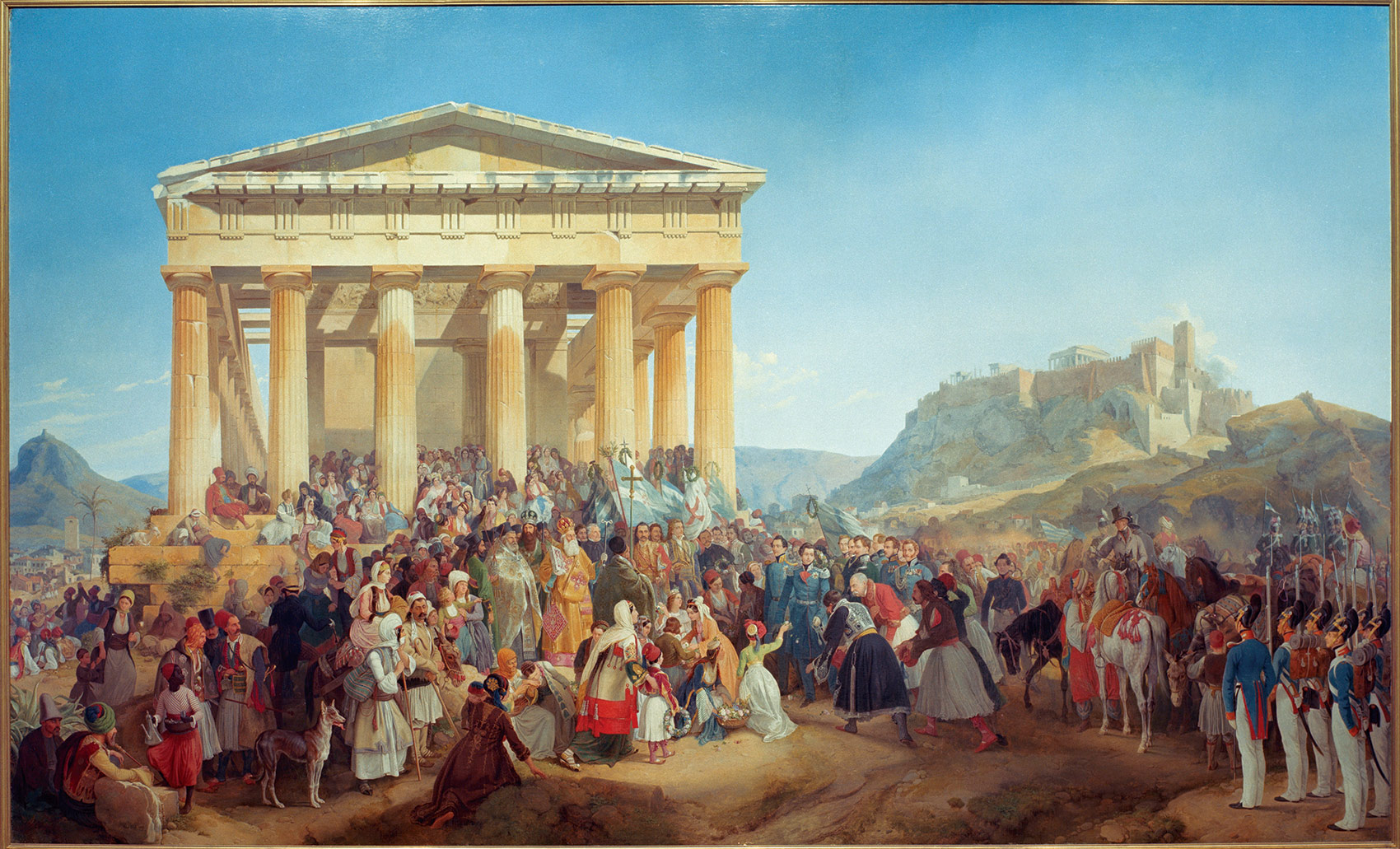Much of what we know about the Greeks before and during the Persian Wars we owe to the industry and intelligence of Herodotus (c. 484-425 B.C.), who began to write his history as an account of the origins and course of the struggle between Greeks and Persians, and expanded it into an inquiry into the peoples of the whole world known to the Greeks.
Born on the Ionian coast of Asia Minor, Herodotus was a great traveler who visited Egypt, Italy, Mesopotamia, and the coast of the Black Sea, collecting information and listening to whatever stories people would tell him about their own past and their present customs. Although he loved a good story, he was both experienced and sensible. He often alerted the reader about a story that he himself did not believe but had set down only to fill out the record.
For his methods, his curiosity, and his sense of style, Herodotus is known as “the father of history.” Some have tended to scoff a little, especially at Herodotus’s tales of a past that was remote even when he was doing his research; but these doubters have often been silenced by archaeological finds. For instance, Herodotus said that the founder of Thebes, the semimythical Cadmus, was a Phoenician who had brought Phoenician letters with him to Greece, about 1350 B.C., some nine hundred years before Herodotus’s own day.
Herodotus added that Cadmus’s dynasty was ousted about 1200 B.C. This was often disbelieved, but in A.D. 1964 archaeologists at Thebes found in the palace of Cadmus a collection of cuneiform seals, one of which was datable to 1367-1346 B.C., demonstrating the high probability of Herodotus’s account of Cadmus. Even the date of the ouster was verified, since the seals were in a layer of material that had been burned about 1200 B.C. and had survived because they were already baked clay.
The equally intelligent, very different historian Thucydides (c. 460-c. 400) wrote of the Peloponnesian Wars. The difference between the two arose partly from their subject matter. Herodotus was dealing with events that had happened largely before his own time, and he had to accept hearsay accounts. Thucydides was dealing mainly with events in which he himself had been a participant. He was an unsuccessful Athenian general who had been punished for his defeat:
But he remained impartial, scientific, and serious-collecting and weighing his information with the greatest care. Though he followed Herodotus’s custom of putting into the mouths of his leading characters words that represented what they might have said rather than what he could prove they said, he told his readers that he was doing this; the actual words were not available, but the arguments on both sides of any issue could be revived and reconstructed in the form of speeches. Pericles’ funeral oration, with its praise of Athenian democracy, is perhaps the most famous example (see p. 35).
Thucydides found the cause of war in people and nations. He had seen his own Athens, so admirable in its best qualities, brought down by the Spartan militarists. He hoped that in the future human intelligence would realize how risky war was and what damage it did to the highest human values; but he knew that human nature would always respond to certain challenges by force, and that the lessons of the past were hard to learn. His narrative of the great military events, such as the siege of Syracuse, moves with great speed and well-concealed artistry. The much less talented and more pedestrian Xenophon, author of the Anabasis, wrote in the Hellenica a continuation of Thucydides’ work down to 362 B.C. And the still less talented Arrian, basing his work largely on the now lost account by Ptolemy I himself, has left us an account of Alexander’s campaigns.
For the century or so that followed the death of Alexander we have no historical work comparable to these. Therefore, we know the period less intimately than any since the Dark Age. It is only with the decade of the 220s that we once again encounter a narrative history, and then its author and his purpose symbolize the change that had taken place. He was Polybius, who wrote in Greek but who had spent much time in Rome, where he had become an admirer and agent of the Romans, and the subject of his book was the rise of Roman power.

